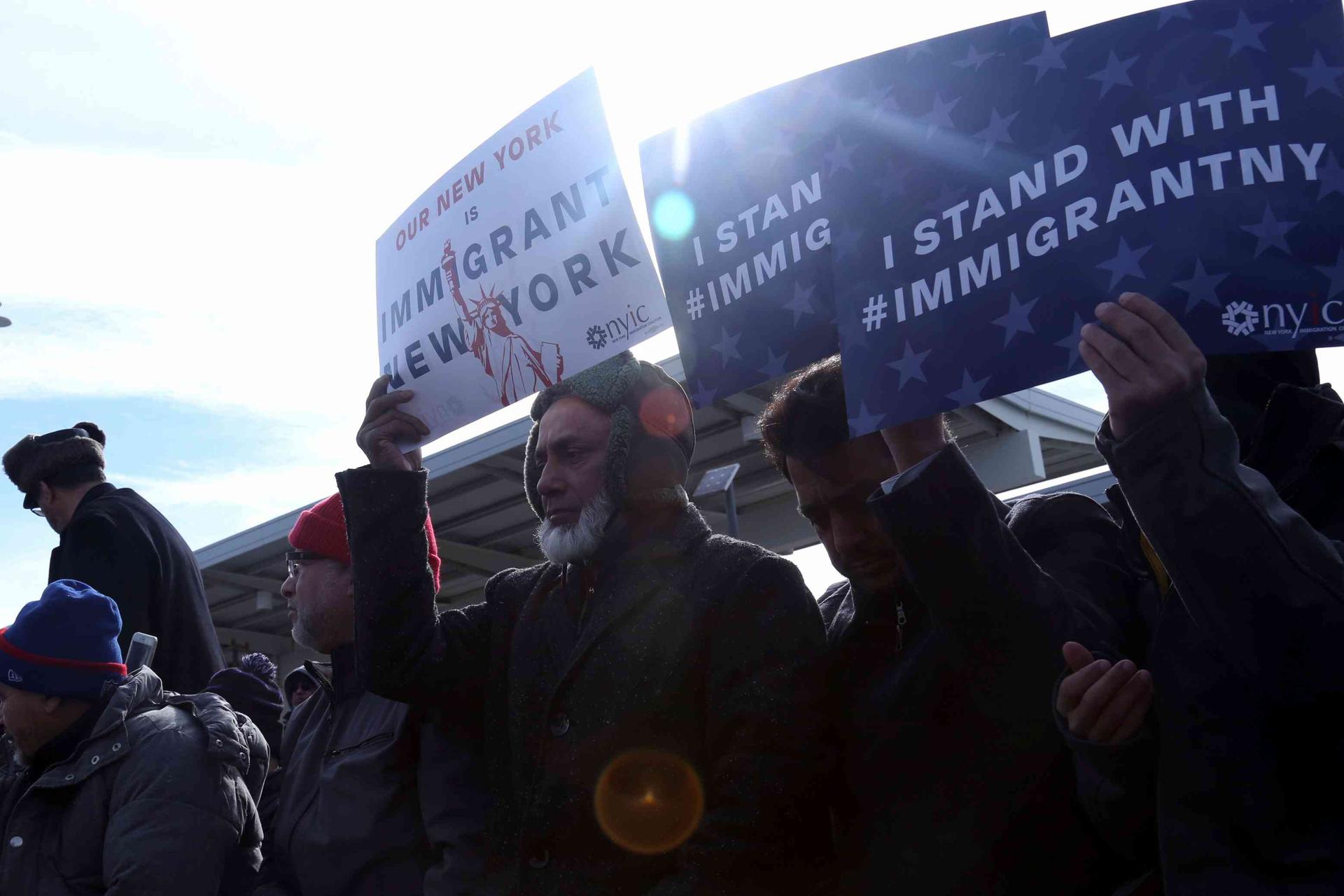Federal judge puts much of Trump’s executive order on immigration and refugees on hold
People hold signs during an interfaith action and Jummah prayer outside Terminal 4 at John F. Kennedy Airport in New York, U.S., February 3, 2017.
A federal judge in Seattle on Friday ordered a temporary, nationwide halt to President Donald Trump's executive order on immigration and travel from seven Muslim-majority countries, in the most severe blow to the controversial measure.
The temporary restraining order issued by US District Judge James Robart will remain valid nationwide pending a full review of a complaint by Washington attorney general Bob Ferguson and Minnesota attorney general Rebecca Otto.
Federal judges in several other states have also acted against the ban since it came into effect last Friday, but Robart's ruling is the furthest reaching order so far.
It came after Ferguson filed a suit to invalidate key provisions of Trump's executive order, which bars Syrian refugees indefinitely and blocks citizens of Iran, Iraq, Libya, Somalia, Sudan, Syria and Yemen from entry into the US for 90 days. Refugees from countries other than Syria are barred from entry for 120 days.
"The constitution prevailed today," Ferguson said after the ruling. "No one is above the law — not even the president."
It remains unclear, however, whether the order would have any affect on the tens of thousands of visas — perhaps as many as 100,000 — canceled by the State Department.
Washington Governor Jay Inslee welcomed the decision as a "tremendous victory" but warned that the battle to overturn Trump's executive order was not over.
"There is still more to do," he said in a statement. "The fight isn't yet won. But we should feel heartened by today's victory and more resolute than ever that we are fighting on the right side of history."
Ferguson argued in his complaint that the president's ban violated the constitutional rights of immigrants and their families as it specifically targets Muslims.
However attorneys representing the Trump administration argued that as president, he had broad powers and was within his right to issue an order that protects Americans.
Similar legal challenges against the ban have been made in several other states, including California, New York and Washington.
The story you just read is not locked behind a paywall because listeners and readers like you generously support our nonprofit newsroom. If you’ve been thinking about making a donation, this is the best time to do it. Your support will get our fundraiser off to a solid start and help keep our newsroom on strong footing. If you believe in our work, will you give today? We need your help now more than ever!
